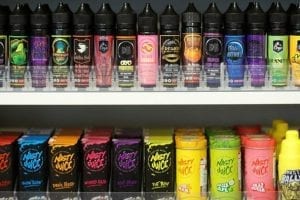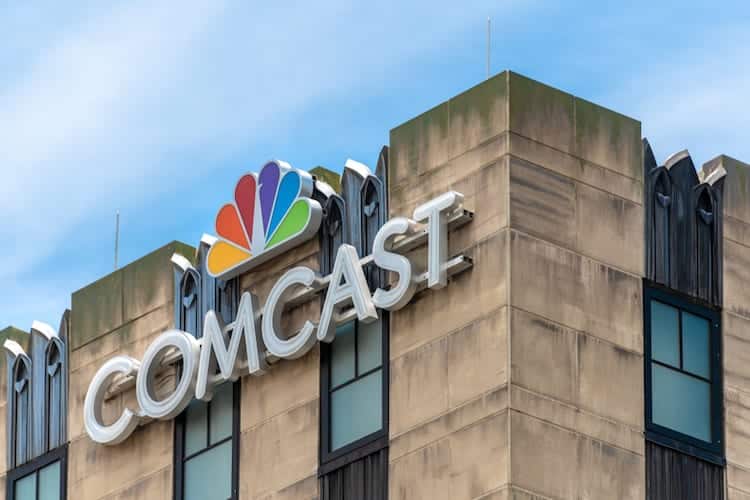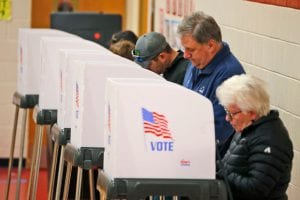 On October 30, Twitter CEO Jack Dorsey announced that, effective November 22, Twitter would ban all political advertising on its platform. Dorsey justified the decision by explaining that political ads present “entirely new challenges to civic discourse.”1 Twitter’s sweeping decision was not an arbitrary one; it was the result of a new wave of scrutiny and criticism over the way social media companies manage political advertising, especially when the ads in question are false or misleading.
On October 30, Twitter CEO Jack Dorsey announced that, effective November 22, Twitter would ban all political advertising on its platform. Dorsey justified the decision by explaining that political ads present “entirely new challenges to civic discourse.”1 Twitter’s sweeping decision was not an arbitrary one; it was the result of a new wave of scrutiny and criticism over the way social media companies manage political advertising, especially when the ads in question are false or misleading.
This past month, President Donald Trump’s campaign ran ads baselessly accusing his Democratic rival, former Vice President Joe Biden, and Biden’s son, of a corruption conspiracy in Ukraine. The videos were viewed millions of times and allowed to stay up on Twitter, Facebook, YouTube, and other social media websites.2 When the Biden campaign asked Facebook to remove the ads, the company refused, citing the “newsworthiness” of the political statements, even though they were not supported by evidence.3 Katie Harbath, Facebook’s head of global elections policy, explained, “Our approach is grounded in Facebook’s fundamental belief in free expression, respect for the democratic process, and the belief that, in mature democracies with a free press, political speech is already arguably the most scrutinized speech there is.”4
Facebook was previously reluctant to police content back in May, when it allowed a doctored video of Speaker of the House Nancy Pelosi—one that was slowed down and made her appear drunk—to remain on the website. The company has also faced intense criticism for its failure to both prevent and acknowledge the distribution of Russian propaganda during the 2016 election. Russian state agents were able to buy thousands of ads, target specific users, and spread fake news to sow confusion, discord, and division.5 Facebook responded with fact-checks to accompany dubious posts and made ad information—such as the purchaser, the amount paid, and the audience reach—publicly accessible. Still, Facebook CEO Mark Zuckerberg has said that he sees the value of not moderating ad content, noting, “In a democracy, I don’t think it’s right for private companies to censor politicians, or the news.”6

Twitter’s ban on political advertising includes all “ads that refer to an election or a candidate” and “ads that advocate for or against legislative issues of national importance.” However, the site will still allow ads that promote voter registration information.7 While Facebook does not require political ads to be accurate, it has removed several ads by the campaigns of President Trump, Biden, and Senator Elizabeth Warren (D-Mass.) due to unrelated policy violations, such as the use of profanity, misleading links, and/or fake buttons.8 This shows a willingness by Facebook, however small, to regulate and reject ads by using some standardized criteria.
Social media has become an increasingly effective tool for politicians to reach and influence voters. According to Advertising Analytics, about $152 million has been spent on digital ads by the 2020 presidential candidates thus far, with online advertising making up 57.5 percent of their total ad spending.9 This isn’t surprising, considering the fact that people increasingly rely on their social media accounts as sources of news and information. Twitter has approximately 126 million daily users, while Facebook has over 1.2 billion daily users worldwide.10
The decisions of Twitter and Facebook have highlighted the tensions regarding content regulation and the partisan divide that accompanies them. Warren has derided Facebook as a “disinformation-for-profit machine,” and her campaign even created a purposely false Facebook ad to underscore the point.11 Facebook’s inaction concerns those who fear a repeat of what happened in 2016.
Likewise, Twitter has attracted criticism for banning political ads altogether. Brad Parscale, the manager of President Trump’s 2020 campaign, called it “yet another attempt to silence conservatives, since Twitter knows President Trump has the most sophisticated online program ever known.”12 Many lesser-known candidates at the grassroots level are also concerned that they may be inadvertently suppressed, as they often turn to online advertising for its broad reach and relatively small costs.
Discussion Questions
- How frequently do you see political ads online?
- How pressing of an issue do you believe fake news and disinformation on social media to be?
- Should politicians be required to make sure everything they post is accurate?
- What action(s) should social media companies take regarding political ads? (Banning them completely like Twitter, allowing them to say anything like Facebook, something in between?)
- Should there be laws or campaign regulations that hold candidates’ advertising to a standard of truth?
Featured Image Credit: WFAE/Twitter
[1] Twitter: https://twitter.com/jack/status/1189634369016586240
[2] Vox: https://www.vox.com/policy-and-politics/2019/10/9/20906612/trump-campaign-ad-joe-biden-ukraine-facebook
[3] New York Times: https://www.nytimes.com/2019/10/12/technology/elizabeth-warren-facebook-ad.html
[4] New York Times: https://www.nytimes.com/2019/10/08/technolog y/facebook-trump-biden-ad.html
[5] House Intelligence Committee: https://intelligence.house.gov/social-media-content/
[6] New York Times: https://www.nytimes.com/2019/10/30/technology/facebooks-earnings-and-revenue-jump-topping-forecasts.html?module=inline
[7] Twitter: https://twitter.com/vijaya/status/1189664481263046656
[8] BuzzFeed News: https://www.buzzfeednews.com/article/ryanmac/facebook-warren-biden-trump-ads-take-down-profanity
[9] Axios: https://www.axios.com/2020-presidential-campaign-advertising-online-tv-8e036c37-68cc-48e4-861e-52ab26b42b6d.html
[10] Washington Post: https://www.washingtonpost.com/technology/2019/02/07/twitter-reveals-its-daily-active-user-numbers-first-time/
[11] Elizabeth Warren via Twitter: https://twitter.com/ewarren/status/1183019880867680256
[12] Trump Campaign via Twitter: https://twitter.com/parscale/status/1189656652250845184

 On November 13, 2019, the Supreme Court heard arguments in Comcast Corp. v. National Association of African American-Owned Media.1 The Court’s decision will determine how difficult it will be to bring future cases regarding possible discrimination and racial bias to trial.2
On November 13, 2019, the Supreme Court heard arguments in Comcast Corp. v. National Association of African American-Owned Media.1 The Court’s decision will determine how difficult it will be to bring future cases regarding possible discrimination and racial bias to trial.2 On Tuesday, November 5, 2019, voters in eight states went to the polls to vote in local and statewide elections. Competitive gubernatorial and state legislative races were held in Kentucky, Mississippi, and Virginia.1 These were the last elections before the 2020 census, which could result in the redrawing of political boundaries in each state. Furthermore, the results of these elections could be potential indicators of voter behavior and turnout in the 2020 election.
On Tuesday, November 5, 2019, voters in eight states went to the polls to vote in local and statewide elections. Competitive gubernatorial and state legislative races were held in Kentucky, Mississippi, and Virginia.1 These were the last elections before the 2020 census, which could result in the redrawing of political boundaries in each state. Furthermore, the results of these elections could be potential indicators of voter behavior and turnout in the 2020 election.






